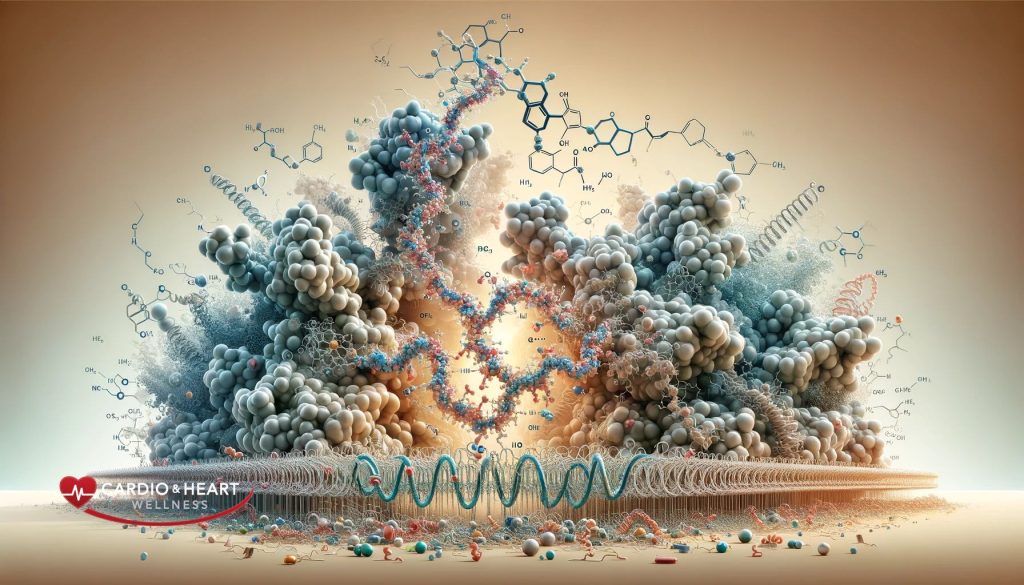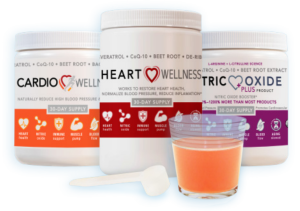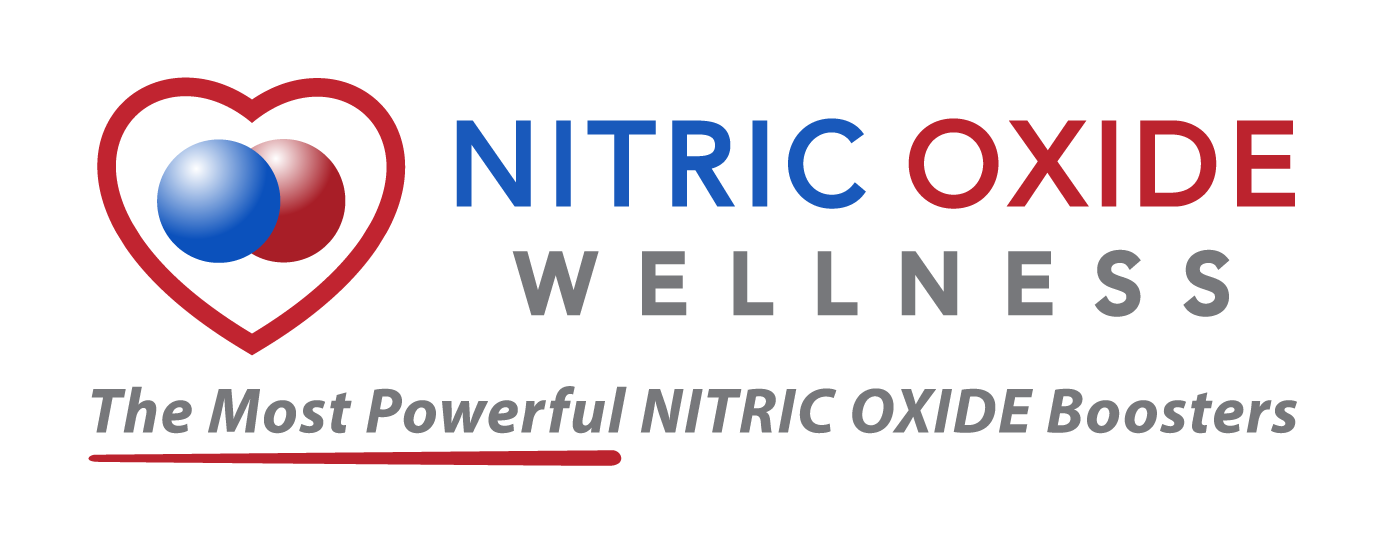Nitric oxide, a seemingly minor molecule, has an immense impact on our health and well-being. A lack of it can lead to many issues that people often overlook or are unaware of. This blog post will focus on the importance nitric oxide plays in one’s body and discuss how to spot symptoms related to its deficiency and methods for addressing these.

Key Takeaways
- Nitric oxide is an important signaling molecule in the body, and its deficiency can lead to serious health issues.
- Identifying symptoms of nitric oxide deficiency helps address potential cardiovascular, physical, and cognitive/emotional issues.
- Strategies such as dietary modifications, exercise, and supplements can help increase nitric oxide levels naturally for improved overall wellbeing.
Essential Understanding of Nitric Oxide and Its Impact on Health

Nitric oxide is an endogenous gas present in the human body that acts as a signaling molecule and participates actively in many bodily functions. These include expanding of blood vessels, communication between nerve cells, release of hormones such as GH (human growth hormone) and insulin, management of inflammation levels, managing flow or circulation within our bloodstreams, plus aiding neurotransmission too.
On the other hand, if nitric oxide concentration decreases below acceptable limits, it can be extremely detrimental to one’s health causing illnesses like heart disease alongside type 2 diabetes with neurological issues along side osteoporosis being common consequences due to insufficient Nitric Oxide levels showing up clinically through high blood pressure cases. Atherosclerosis, clots formation also linking together into problems related to erectile dysfunction. There is a lot of importance put on looking into measuring nitric oxide concentrations given its connection to several concerning matters about heart,hormonal or even immune system’s overall well-being.
Pinpointing Symptoms of Nitric Oxide Deficiency

It’s important to recognize the signs of nitric oxide deficiency since its manifestations can vary from physical performance issues, cognitive/emotional problems and cardiovascular health. The following sections will be dedicated to providing insight into these symptoms so that you have a more thorough understanding when attempting to identify or tackle nitric oxide deficiency. This includes keywords like oxideric depletion as well as suggestions for correcting it.
Cardiovascular Indicators

Having low nitric oxide amounts can considerably influence your cardiovascular wellbeing, such as increasing the odds of developing heart disease. Research has suggested a deficiency in this compound might be linked to atherosclerosis (a build-up of plaque inside arteries) which could up one’s risk for having strokes and heart attacks. Also resulting in higher blood pressure levels and reduced circulation flow. The amino acid L-arginine is extremely important when it comes to producing more nitric oxide, with its own pathway – namely the “L-Arginine/NO Pathway” directly yielding said molecules within our body systems. Studies have uncovered that those suffering from high blood pressure may particularly benefit from ingesting arginine supplements due to being found effective at lowering their condition’s symptoms plus improve on general fluid dissemination throughout them too!
Physical Performance Setbacks
Nitric oxide levels have a direct impact on physical performance. Individuals with low nitric oxide can suffer from fatigue, muscle soreness and slow recovery times due to the restrictions in blood flow and oxygen supply that such an oxidation deficiency causes. Nitric oxide functions as a vasodilator which activates growth factors responsible for rebuilding muscles. Thus supplementing it may promote better exercise results while decreasing tenderness post-workout. Besides its effect on one’s ability to perform physically, low nitric oxide also affects other cardiovascular symptoms.
Cognitive and Emotional Effects
Nitric oxide plays a major role in keeping both physical and mental health. Its lack of presence can cause many problems, including memory issues, difficulty focusing as well as cognitive decline. Research has demonstrated that periods of stress may reduce nitric oxide levels too low to an unhealthy state, emphasising the importance of understanding how to identify and deal with deficiencies involving this compound. Proper circulation within neurons is promoted by having enough oxides present in our body. Hence it’s essential for overall wellbeing.
The Science Behind Nitric Oxide Production

Nitric oxide synthesis is essential for proper blood flow regulation and neurotransmission, so measuring nitric oxide levels can reveal any underlying deficiencies. Three tests are used to measure these levels: a breath test, saliva exam or by examining the patient’s blood sample. These measurements help qualified practitioners understand if rebalancing of nitric oxide needs to be done in order to restore health with Dietary supplements which may contain L-arginine – an amino acid necessary for endogenous production of this gas within the body as facilitated by special enzymes known as Nitrate Oxide Synthases (NOS). Identifying any potential deficiency helps put back balance when it comes down having sufficient amount needed from its original source or taking doses orally.
Factors Contributing to Low Nitric Oxide Levels
Low levels of nitric oxide can be caused by several components, like aging and genetics, or activities such as not exercising enough. It is especially prevalent among the elderly due to a decrease in production from reduced activity of endothelial nitric oxide synthase. A diet with too much LDL cholesterol and saturated fat also leads to lower concentrations of it. One should implement suitable lifestyle choices which are beneficial for overall health in order to avoid an inadequate supply of this molecule.
Physical exercise plays an integral role when it comes to preventing low nitrogen-oxide levels, so regular physical exertion is important if avoiding deficiency symptoms related to this gas is desired. Age together along with other factors ultimately have influence over how many molecules there will be present inside our bodies at all times thus keeping these fundamentals into consideration can help us stay healthy through optimal performance on both bodily processes and organs provided proper conditions thereof.
Strategies to Increase Nitric Oxide Levels Naturally
Nitric oxide levels can be increased and the risk of deficiency reduced with several natural strategies, such as changing one’s diet, exercising regularly and practicing good oral hygiene. These simple yet effective methods are sure to help boost nitric oxide levels naturally.
Dietary Adjustments for Enhanced Nitric Oxide Synthesis

Nitric oxide is critical to healthy functioning and consuming nitrate-rich food sources as well as L-arginine may help enhance its synthesis. Dietary choices such as red beets, spinach, kale, romaine lettuce, celery and even watermelon are all excellent options for bolstering the presence of this vital compound in your body. Fruits including Kiwi fruit apples pomegranate bananas oranges strawberries peaches and pears should also form part of a nutritious diet promoting better health outcomes associated with increased nitric oxide levels. In addition. Nuts seeds or lean meats can add beneficial L-arginine, which acts as an essential precursor when producing NO thus supporting optimal wellbeing via enhanced production rates through dietary means alone!
Exercise’s Role in Boosting Nitric Oxide
Regular physical activity is a great way to boost nitric oxide production and promote cardiovascular health. An optimal plan that includes both aerobic and anaerobic exercises for at least 30 minutes three times per week should be implemented in order to increase levels of this important gas molecule, plus its impact on endothelial function, vasodilation capacity and arterial stiffness could reduce the risks associated with heart-related diseases. Exercise has also been proven beneficial by increasing blood flow throughout the body while promoting higher amounts of nitric oxide simultaneously. Contributing significantly towards better overall well-being as it relates to our hearts.
Importance of Maintaining Oral Health
Sustaining oral hygiene is important to ensure adequate production of nitric oxide and avoiding deficiencies. Bacteria in the mouth contribute to nitric oxide levels, impacting an individual’s metabolism. A mismatch in bacterial balance may lead to low levels of this element, which could cause a Deficiency state.
Studies have revealed that specific bacteria associated with poor dental care can interfere with both blood pressure control and homeostasis related to nitrogen dioxide concentrations. It’s key for sustaining healthy amounts of this chemical within our body as well as overall healthiness.
Addressing Nitric Oxide Deficiency with Supplements
For those who are not able to augment nitric oxide levels naturally, supplements offer an effective way to confront a lack of this compound and bolster general health. By increasing nitric oxide concentration in the body, any deficiency can be addressed successfully.
Evaluating Nitric Oxide Supplement Options
When looking into nitric oxide supplements, it is important to evaluate factors such as the components, safety and efficiency. Products like Nitric Oxide Plus contain either L-arginine and L-citrulline which may actually assist in increasing nitric oxide amounts within the body for 24 hours per day.
It’s imperative that you consult with a doctor before taking any type of supplement containing nitric oxide due to them potentially interacting with medicines for diabetes or blood pressure related issues. Despite being considered safe, certain side effects are possible including bloating, heartburn and abdominal pain plus head aches and even palpitations along nausea/vomiting spells along with diarrhea, not forgetting probable low blood pressure levels and rapid heartbeat incidents too.
The Heart Wellness Edge

Cardio & Heart Wellness presents Nitric Oxide Plus, which is packed with active ingredients such as L-Arginine and L-Citrulline, producing an ultimate aid in cardiovascular health care along with nourishment of nitric oxide. The addition of these two supplements aids the growth and maintenance of nitrogen oxide levels effectively, expanding blood vessels for better circulation thereby diminishing chances of encountering any form of heart disease. Studies have also shown that intake of Nitric Oxide plus may result in improved athletic performance while providing therapeutic relief from erectile dysfunction too!
Comparing it to similar products on the market reveals its superiority when it comes down to releasing maximal amounts of nitrous oxide concentrations, a valuable support system against deficiency related issues. Utilizing Cardio & Hearts wellness’s precisely formulated product assures optimum preventative measures crucial for managing your body’s balanced state optimally by improving arterial flow easily at all times!
Summary
Nitric oxide is an important factor when it comes to our overall health, and we must be aware of the effects of its deficiency. To raise nitric oxide levels in a natural way, include foods high in arginine and partake regularly in physical activities as well as maintain good oral hygiene. Supplements like Nitric Oxide Plus can also effectively provide assistance for those requiring more help with addressing their lack thereof if needed. Taking control of one’s own health could grant them entry into leading brighter futures!
Frequently Asked Questions
How do I know if my nitric oxide is low?
Low nitric oxide levels can be associated with a decrease in oxygen and circulation, resulting in symptoms such as warmth, soreness or decreased mobility. These indicators signify that there is not enough nitric oxide present to support proper bodily function.
What is the fastest way to increase nitric oxide?
One of the best methods to boost nitric oxide levels is by consuming a diet high in vegetables that are rich in arginine, utilizing antioxidant supplements or taking L-arginine and L-citrulline supplements, limiting mouthwash use and engaging with regular physical exercise.
What vitamin boosts nitric oxide?
The combination of dietary arginine with Vitamin C is imperative for promoting the production of nitric oxide. This essential element should not be overlooked in order to maintain heightened levels of this crucial element.
What are the symptoms of nitric oxide deficiency?
Nitric oxide deficiency can lead to many problems such as elevated blood pressure, tiredness, memory loss and even depression. Being deficient in nitric oxide may cause various issues which must be addressed promptly.
